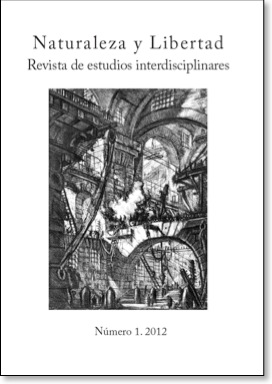Evolucionismo y utopía de género
DOI:
https://doi.org/10.24310/nyl.v1i1.3975Keywords:
Evolucionismo, género, ideología, transhumanismo, laicismo,Abstract
Resumen: Durante el siglo XX tanto el cientifismo, como el darwinismo social hicieron un uso ideológico de la teoría científica de la evolución. En opinión del autor, esas ideologías, junto a otras —como los distintos tipos de totalitarismo— están generando nuevas ideologías que acechan a las sociedades avanzadas. Este nuevo pensamiento dominante es una amalgama de transhumanismo, ideología de género y laicismo. Es necesario que la filosofía ejerza una nueva crítica de las ideologías.
Palabras clave: Evolucionismo, género, ideología, transhumanismo, laicismo.
Abstract: In the 20th century the scientificism as well as the social darwinism made an ideological use of the scientific theory of evolution. According to the author, those ideologies and other ones such as the different types of totalitarism, are generating new ideologies that threaten the developed societies. This new political correctness is a mixture of transhumanism, gender ideology and laicism. These new ideologies should be critized by philosophy.
Key words: theory of evolution, ideologie, transhumanism, laicism.
Recibido: 16/02/2011. Aprobado: 10/12/2011
Downloads
Metrics
Downloads
Published
How to Cite
Issue
Section
License
Those authors who have publications with this journal, accept the following terms:
1. Copyright and licensing information are clearly described on the journal’s web site: all content published in Naturaleza y Libertad is open acces without limit, and are subject to the Attribution-NonCommercial-ShareAlike 4.0 International (CC BY-NC-SA 4.0) license. The full text of which can be consulted at https://creativecommons.org/licenses/by-nc-sa/4.0/
2. It is the responsibility of the authors to obtain the necessary permissions for the images that are subject to copyright. The authors whose contributions are accepted for publication in this journal will retain the non-exclusive right to use their contributions for academic, research and educational purposes, including self-archiving or deposit in open access repositories of any kind. The electronic edition of this magazine is edited by the Editorial de la University of Malaga (UmaEditorial), being necessary to cite the origin in any partial or total reproduction.
3. This journal allows and encourages authors to publish papers on their personal websites or in institutional repositories, both before and after their publication in this journal, as long as they provide bibliographic information that accredits, if applicable, your posting on it.
4. In no case will anonymous papers be published.





18.png)













